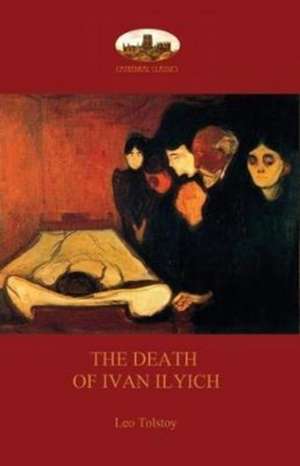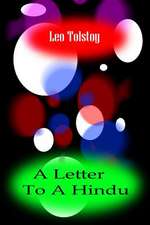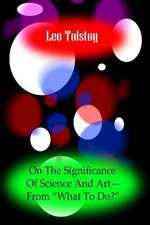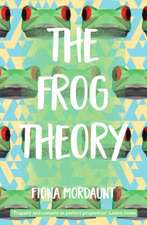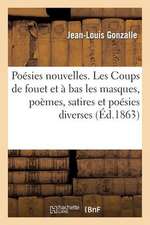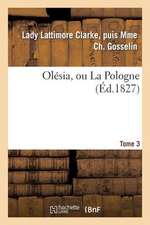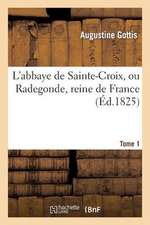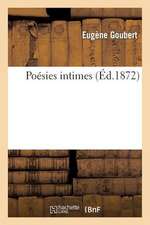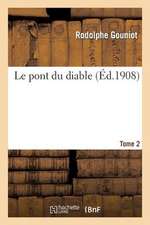The Death of Ivan Ilyich
Autor Leo Nikolayevich Tolstoyen Limba Engleză Paperback – 11 mai 2017
| Toate formatele și edițiile | Preț | Express |
|---|---|---|
| Paperback (7) | 35.89 lei 3-5 săpt. | +4.05 lei 7-13 zile |
| Bantam Books – 28 feb 1981 | 35.89 lei 3-5 săpt. | +4.05 lei 7-13 zile |
| CreateSpace Independent Publishing Platform – | 40.66 lei 3-5 săpt. | |
| CREATESPACE – 30 apr 2010 | 43.91 lei 3-5 săpt. | |
| CreateSpace Independent Publishing Platform – | 46.82 lei 3-5 săpt. | |
| CREATESPACE – | 47.41 lei 3-5 săpt. | |
| AZILOTH BOOKS – 11 mai 2017 | 52.48 lei 6-8 săpt. | |
| Iap - Information Age Pub. Inc. – 31 oct 2010 | 58.89 lei 6-8 săpt. | |
| Hardback (2) | 125.14 lei 6-8 săpt. | |
| White Crow Books – 24 apr 2011 | 141.71 lei 3-5 săpt. | |
| – | 125.14 lei 6-8 săpt. |
Preț: 52.48 lei
Nou
Puncte Express: 79
Preț estimativ în valută:
10.04€ • 10.43$ • 8.37£
10.04€ • 10.43$ • 8.37£
Carte tipărită la comandă
Livrare economică 22 martie-05 aprilie
Preluare comenzi: 021 569.72.76
Specificații
ISBN-13: 9781911405368
ISBN-10: 1911405365
Pagini: 94
Dimensiuni: 129 x 198 x 6 mm
Greutate: 0.11 kg
Editura: AZILOTH BOOKS
ISBN-10: 1911405365
Pagini: 94
Dimensiuni: 129 x 198 x 6 mm
Greutate: 0.11 kg
Editura: AZILOTH BOOKS
Notă biografică
Count Lev Nikolayevich Tolstoy (/¿tölst¿¿, ¿t¿l-/;[2] Russian: ¿¿¿ ¿¿¿¿¿¿¿¿¿¿ ¿¿¿¿¿¿¿, was born 9 September [O.S. 28 August] 1828 - 20 November [O.S. 7 November] 1910). He is usually referred to in English as Leo Tolstoy, was a Russian writer who is regarded as one of the greatest authors of all time. He received nominations for the Nobel Prize in Literature every year from 1902 to 1906 and for the Nobel Peace Prize in 1901, 1902, and 1909; the fact that he never won is a major controversy.Born to an aristocratic Russian family in 1828, Tolstoy's notable works include the novels War and Peace (1869) and Anna Karenina (1878),[8] often cited as pinnacles of realist fiction. He first achieved literary acclaim in his twenties with his semi-autobiographical trilogy, Childhood, Boyhood, and Youth (1852-1856), and Sevastopol Sketches (1855), based upon his experiences in the Crimean War. His fiction includes dozens of short stories and several novellas such as The Death of Ivan Ilyich (1886), Family Happiness (1859), "After the Ball" (1911), and Hadji Murad (1912). He also wrote plays and numerous philosophical essays.In the 1870s, Tolstoy experienced a profound moral crisis, followed by what he regarded as an equally profound spiritual awakening, as outlined in his non-fiction work A Confession (1882). His literal interpretation of the ethical teachings of Jesus, centering on the Sermon on the Mount, caused him to become a fervent Christian anarchist and pacifist. His ideas on nonviolent resistance, expressed in such works as The Kingdom of God Is Within You (1894), had a profound impact on such pivotal 20th-century figures as Mahatma Gandhi[9] and Martin Luther King Jr. He also became a dedicated advocate of Georgism, the economic philosophy of Henry George, which he incorporated into his writing, particularly Resurrection (1899).
Extras
CHAPTER 1
In the large building housing the Law Courts, during a recess in the Melvinsky proceedings, members of the court and the public prosecutor met in the office of Ivan Egorovich Shebek, where the conversation turned on the celebrated Krasov case. Fyodor Vasilyevich vehemently denied that it was subject to their jurisdiction, Ivan Egorovich clung to his own view, while Pyotr Ivanovich, who had taken no part in the dispute from the outset, glanced through a copy of the News that had just been delivered.
"Gentlemen!" he said. "Ivan Ilyich is dead."
"Really?"
"Here, read this," he said to Fyodor Vasilyevich, handing him the fresh issue, still smelling of printer's ink.
Framed in black was the following announcement: "With profound sorrow Praskovya Fyodorovna Golovina informs relatives and acquaintances that her beloved husband, Ivan Ilyich Golovin, Member of the Court of Justice, passed away on the 4th of February, 1882. The funeral will be held on Friday at one o'clock."
Ivan Ilyich had been a colleague of the gentlemen assembled here and they had all been fond of him. He had been ill for some weeks and his disease was said to be incurable. His post had been kept open for him, but it had been speculated that in the event of his death Alekseev might be appointed to his place and either Vinnikov or Shtabel succeed Alekseev. And so the first thought that occurred to each of the gentlemen in this office, learning of Ivan Ilyich's death, was what effect it would have on their own transfers and promotions or those of their acquaintances.
"Now I'm sure to get Shtabel's post or Vinnikov's," thought Fyodor Vasilyevich. "It was promised to me long ago, and the promotion will mean an increase of eight hundred rubles in salary plus an allowance for office expenses."
"I must put in a request to have my brother-in-law transferred from Kaluga," thought Pyotr Ivanovich. "My wife will be very happy. Now she won't be able to say I never do anything for her family."
"I had a feeling he'd never get over it," said Pyotr Ivanovich. "Sad."
"What, exactly, was the matter with him?"
"The doctors couldn't decide. That is, they decided, but in different ways. When I last saw him, I thought he would recover."
"And I haven't been there since the holidays. I kept meaning to go."
"Was he a man of any means?"
"His wife has a little something, I think, but nothing much."
"Well, there's no question but that we'll have to go and see her. They live so terribly far away."
"From you, that is. From your place, everything's far away."
"You see, he just can't forgive me for living on the other side of the river," said Pyotr Ivanovich, smiling at Shebek. And with that they began talking about relative distances in town and went back to the courtroom.
In addition to the speculations aroused in each man's mind about the transfers and likely job changes this death might occasion, the very fact of the death of a close acquaintance evoked in them all the usual feeling of relief that it was someone else, not they, who had died.
"Well, isn't that something--he's dead, but I'm not," was what each of them thought or felt. The closer acquaintances, the so-called friends of Ivan Ilyich, involuntarily added to themselves that now they had to fulfill the tedious demands of propriety by attending the funeral service and paying the widow a condolence call.
Fyodor Vasilyevich and Pyotr Ivanovich had been closest to him. Pyotr Ivanovich had studied law with Ivan Ilyich and considered himself indebted to him. At dinner that evening he told his wife the news of Ivan Ilyich's death, conjectured about the possibility of having her brother transferred to their district, and then, dispensing with his usual nap, he put on a dress coat and drove to Ivan Ilyich's home.
A carriage and two cabs were parked before the entrance. Downstairs in the hallway, next to the coat stand, a coffin lid decorated with silk brocade, tassels, and highly polished gilt braid was propped against the wall. Two women in black were taking off their fur coats. One of them he recognized as Ivan Ilyich's sister; the other was a stranger. Schwartz, his colleague, was just starting down the stairs, but on seeing Pyotr Ivanovich enter, he paused at the top step and winked at him as if to say: "Ivan Ilyich has really bungled--not the sort of thing you and I would do."
There was, as usual, an air of elegant solemnity about Schwartz, with his English side-whiskers and his lean figure in a dress coat, and this solemnity, always such a marked contrast to his playful personality, had a special piquancy here. So, at least, Pyotr Ivanovich thought.
Pyotr Ivanovich stepped aside to let the ladies pass and slowly followed them up the stairs. Schwartz did not proceed downward but remained on the landing. Pyotr Ivanovich understood why; obviously, he wanted to arrange where they should play whist that evening. The ladies went upstairs to the widow's quarters, while Schwartz, his lips compressed into a serious expression and his eyes gleaming playfully, jerked his brows to the right to indicate the room where the dead man lay.
Pyotr Ivanovich went in bewildered, as people invariably are, about what he was expected to do there. The one thing he knew was that on such occasions it never did any harm to cross oneself. He was not quite certain whether he ought also to bow and so he adopted a middle course: on entering the room he began to cross himself and make a slight movement resembling a bow. At the same time, to the extent that the motions of his hands and head permitted, he glanced about the room. Two young people, apparently nephews, one of them a gymnasium student, were crossing themselves as they left the room. An old woman was standing motionless. And a lady with peculiarly arched brows was whispering something to her. A church reader in a frock coat--a vigorous, resolute fellow--was reading something in a loud voice and in a tone that brooked no contradiction. The pantry boy, Gerasim, stepped lightly in front of Pyotr Ivanovich, sprinkling something about the floor. Seeing this, Pyotr Ivanovich immediately became aware of a faint odor of decomposition. On his last visit Pyotr Ivanovich had seen this peasant boy in Ivan Ilyich's study; he had acted as a sick nurse to the dying man and Ivan Ilyich had been particularly fond of him.
Pyotr Ivanovich went on crossing himself and bowing slightly in a direction midway between the coffin, the church reader, and the icons on a table in the corner. Then, when he felt he had overdone the crossing, he paused and began to examine the dead man.
The body lay, as the dead invariably do, in a peculiarly heavy manner, with its rigid limbs sunk into the bedding of the coffin and its head eternally bowed on the pillow, exhibiting, as do all dead bodies, a yellow waxen forehead (with bald patches gleaming on the sunken temples), the protruding nose beneath seeming to press down against the upper lip. Ivan Ilyich had changed a great deal, grown even thinner since Pyotr Ivanovich had last seen him, and yet, as with all dead men, his face had acquired an expression of greater beauty--above all, of greater significance--than it had in life. Its expression implied that what needed to be done had been done and done properly. Moreover, there was in this expression a reproach or a reminder to the living. This reminder seemed out of place to Pyotr Ivanovich, or at least inapplicable to him. He began to feel somewhat uncomfortable and so he crossed himself hurriedly (all too hurriedly, he felt, from the standpoint of propriety), turned, and headed for the door.
In the adjoining room Schwartz was waiting for him, his feet planted solidly apart, his hands toying with the top hat he held behind his back. One glance at his playful, well-groomed, elegant figure was enough to revive Pyotr Ivanovich. He felt that Schwartz was above all this and would not succumb to mournful impressions. His very appearance seemed to say: "In no way can the incident of this funeral service for Ivan Ilyich be considered sufficient grounds for canceling the regular session; that is, nothing can prevent us from meeting tonight and flipping through a new deck of cards while a footman places four fresh candles around the table. There is, in fact, no reason to assume this incident can keep us from spending a pleasant evening." And he said as much to Pyotr Ivanovich in a whisper, proposing they meet for a game at Fyodor Vasilyevich's.
But Pyotr Ivanovich was not destined to play cards that evening. Praskovya Fyodorovna, a short, stocky woman (far broader at the hips than at the shoulders, despite all her efforts to the contrary), dressed all in black, with a lace shawl on her head and with the same peculiarly arched brows as the woman facing the coffin, emerged from her chambers with some other ladies whom she showed to the door of the room where the dead man lay, and said: "The service is about to begin, do go in."
Schwartz made a vague sort of bow, then stopped, neither accepting nor rejecting the invitation. Recognizing Pyotr Ivanovich, Praskovya Fyodorovna sighed, went right up to him, took his hand, and said: "I know you were a true friend of Ivan Ilyich's . . ." and looked at him, awaiting a fitting response. Pyotr Ivanovich knew that just as he had to cross himself in there, here he had to press her hand, sigh, and say: "I assure you!" And so he did. And having done so felt he had achieved the desired effect: he was touched and so was she.
"Come, before it begins, I must have a talk with you," said the widow. "Give me your arm."
He gave her his arm and they proceeded toward the inner rooms, past Schwartz, who threw Pyotr Ivanovich a wink of regret that said: "So much for your card game. Don't be offended if we find another player. Perhaps you can make a fifth when you get away."
Pyotr Ivanovich sighed even more deeply and plaintively, and Praskovya Fyodorovna squeezed his hand gratefully. On entering her drawing room, decorated in pink cretonne and lit with a dim lamp, they sat down beside a table: she on a sofa, Pyotr Ivanovich on a low ottoman with broken springs that shifted under his weight. Praskovya Fyodorovna wanted to warn him against sitting there but felt such a warning was not in keeping with her situation and decided against it. As he sat down on the ottoman Pyotr Ivanovich recalled how, in decorating the room, Ivan Ilyich had consulted him about this pink cretonne with the green leaves. The whole room was crammed with furniture and knick-knacks, and as the widow stepped past the table to seat herself on the sofa, she entangled the lace of her black shawl in a bit of carving. Pyotr Ivanovich rose slightly to untangle it, and as he did the springs of the ottoman, freed of pressure, surged and gave him a little shove. The widow started to disentangle the lace herself and Pyotr Ivanovich sat down again, suppressing the rebellious springs beneath him. But the widow had not fully disentangled herself and Pyotr Ivanovich rose once again, and again the ottoman rebelled and even creaked. When all this was over, the widow took out a clean cambric handkerchief and began to weep. The episode with the lace and the battle with the ottoman had chilled Pyotr Ivanovich's emotions and he sat there scowling. The strain of the situation was broken when Sokolov, Ivan Ilyich's footman, came to report that the plot Praskovya Fyodorovna had selected in the cemetery would cost two hundred rubles. She stopped weeping and, glancing at Pyotr Ivanovich with a victimized air, told him in French how hard this was for her. He responded with a silent gesture indicating he had no doubt this was so.
"Please feel free to smoke," she said in a magnanimous yet crushed tone of voice and turned to Sokolov to discuss the price of the grave. As he lit his cigarette Pyotr Ivanovich heard her make detailed inquiries about the prices of various plots and arrive at a very sound decision. Moreover, when she had settled that matter, she made arrangements about the choristers. Then Sokolov left.
"I attend to everything myself," she said to Pyotr Ivanovich, moving aside some albums on the table. And noticing that the ashes of his cigarette were in danger of falling on the table, she quickly passed him an ashtray and said: "I believe it would be sheer pretense for me to say that I am unable, because of grief, to attend to practical matters. On the contrary, if anything can . . . I won't say console but . . . distract me, it is seeing to all these things about him." Again she took out a handkerchief as if about to weep but suddenly seemed to have mastered her emotion, and with a little toss of her head she began to speak calmly.
"But there is a matter I wish to discuss with you."
Pyotr Ivanovich bowed his head in response, taking care not to allow the springs of the ottoman, which immediately grew restive, to have their way.
"He suffered terribly the last few days."
"Did he?" asked Pyotr Ivanovich.
"Oh, frightfully! He screamed incessantly, not for minutes but for hours on end. He screamed for three straight days without pausing for breath. It was unbearable. I don't know how I bore up through it all. You could hear him three rooms away. Oh, what I've been through!"
"And was he really conscious through it all?" asked Pyotr Ivanovich.
"Yes," she whispered, "to the very last. He took leave of us a quarter of an hour before he died and even asked us to take Volodya away."
Despite a distasteful awareness of his own hypocrisy as well as hers, Pyotr Ivanovich was overcome with horror as he thought of the suffering of someone he had known so well, first as a carefree boy, then as a schoolmate, later as a grown man, his colleague. Once again he saw that forehead, that nose pressing down on the upper lip, and fear for himself took possession of him.
"Three days of terrible suffering and death. Why, the same thing could happen to me at anytime now," he thought and for a moment felt panic-stricken. But at once, he himself did not know how, he was rescued by the customary reflection that all this had happened to Ivan Ilyich, not to him, that it could not and should not happen to him; and that if he were to grant such a possibility, he would succumb to depression which, as Schwartz's expression had made abundantly clear, he ought not to do. With this line of reasoning Pyotr Ivanovich set his mind at rest and began to press for details about Ivan Ilyich's death, as though death were a chance experience that could happen only to Ivan Ilyich, never to himself.
In the large building housing the Law Courts, during a recess in the Melvinsky proceedings, members of the court and the public prosecutor met in the office of Ivan Egorovich Shebek, where the conversation turned on the celebrated Krasov case. Fyodor Vasilyevich vehemently denied that it was subject to their jurisdiction, Ivan Egorovich clung to his own view, while Pyotr Ivanovich, who had taken no part in the dispute from the outset, glanced through a copy of the News that had just been delivered.
"Gentlemen!" he said. "Ivan Ilyich is dead."
"Really?"
"Here, read this," he said to Fyodor Vasilyevich, handing him the fresh issue, still smelling of printer's ink.
Framed in black was the following announcement: "With profound sorrow Praskovya Fyodorovna Golovina informs relatives and acquaintances that her beloved husband, Ivan Ilyich Golovin, Member of the Court of Justice, passed away on the 4th of February, 1882. The funeral will be held on Friday at one o'clock."
Ivan Ilyich had been a colleague of the gentlemen assembled here and they had all been fond of him. He had been ill for some weeks and his disease was said to be incurable. His post had been kept open for him, but it had been speculated that in the event of his death Alekseev might be appointed to his place and either Vinnikov or Shtabel succeed Alekseev. And so the first thought that occurred to each of the gentlemen in this office, learning of Ivan Ilyich's death, was what effect it would have on their own transfers and promotions or those of their acquaintances.
"Now I'm sure to get Shtabel's post or Vinnikov's," thought Fyodor Vasilyevich. "It was promised to me long ago, and the promotion will mean an increase of eight hundred rubles in salary plus an allowance for office expenses."
"I must put in a request to have my brother-in-law transferred from Kaluga," thought Pyotr Ivanovich. "My wife will be very happy. Now she won't be able to say I never do anything for her family."
"I had a feeling he'd never get over it," said Pyotr Ivanovich. "Sad."
"What, exactly, was the matter with him?"
"The doctors couldn't decide. That is, they decided, but in different ways. When I last saw him, I thought he would recover."
"And I haven't been there since the holidays. I kept meaning to go."
"Was he a man of any means?"
"His wife has a little something, I think, but nothing much."
"Well, there's no question but that we'll have to go and see her. They live so terribly far away."
"From you, that is. From your place, everything's far away."
"You see, he just can't forgive me for living on the other side of the river," said Pyotr Ivanovich, smiling at Shebek. And with that they began talking about relative distances in town and went back to the courtroom.
In addition to the speculations aroused in each man's mind about the transfers and likely job changes this death might occasion, the very fact of the death of a close acquaintance evoked in them all the usual feeling of relief that it was someone else, not they, who had died.
"Well, isn't that something--he's dead, but I'm not," was what each of them thought or felt. The closer acquaintances, the so-called friends of Ivan Ilyich, involuntarily added to themselves that now they had to fulfill the tedious demands of propriety by attending the funeral service and paying the widow a condolence call.
Fyodor Vasilyevich and Pyotr Ivanovich had been closest to him. Pyotr Ivanovich had studied law with Ivan Ilyich and considered himself indebted to him. At dinner that evening he told his wife the news of Ivan Ilyich's death, conjectured about the possibility of having her brother transferred to their district, and then, dispensing with his usual nap, he put on a dress coat and drove to Ivan Ilyich's home.
A carriage and two cabs were parked before the entrance. Downstairs in the hallway, next to the coat stand, a coffin lid decorated with silk brocade, tassels, and highly polished gilt braid was propped against the wall. Two women in black were taking off their fur coats. One of them he recognized as Ivan Ilyich's sister; the other was a stranger. Schwartz, his colleague, was just starting down the stairs, but on seeing Pyotr Ivanovich enter, he paused at the top step and winked at him as if to say: "Ivan Ilyich has really bungled--not the sort of thing you and I would do."
There was, as usual, an air of elegant solemnity about Schwartz, with his English side-whiskers and his lean figure in a dress coat, and this solemnity, always such a marked contrast to his playful personality, had a special piquancy here. So, at least, Pyotr Ivanovich thought.
Pyotr Ivanovich stepped aside to let the ladies pass and slowly followed them up the stairs. Schwartz did not proceed downward but remained on the landing. Pyotr Ivanovich understood why; obviously, he wanted to arrange where they should play whist that evening. The ladies went upstairs to the widow's quarters, while Schwartz, his lips compressed into a serious expression and his eyes gleaming playfully, jerked his brows to the right to indicate the room where the dead man lay.
Pyotr Ivanovich went in bewildered, as people invariably are, about what he was expected to do there. The one thing he knew was that on such occasions it never did any harm to cross oneself. He was not quite certain whether he ought also to bow and so he adopted a middle course: on entering the room he began to cross himself and make a slight movement resembling a bow. At the same time, to the extent that the motions of his hands and head permitted, he glanced about the room. Two young people, apparently nephews, one of them a gymnasium student, were crossing themselves as they left the room. An old woman was standing motionless. And a lady with peculiarly arched brows was whispering something to her. A church reader in a frock coat--a vigorous, resolute fellow--was reading something in a loud voice and in a tone that brooked no contradiction. The pantry boy, Gerasim, stepped lightly in front of Pyotr Ivanovich, sprinkling something about the floor. Seeing this, Pyotr Ivanovich immediately became aware of a faint odor of decomposition. On his last visit Pyotr Ivanovich had seen this peasant boy in Ivan Ilyich's study; he had acted as a sick nurse to the dying man and Ivan Ilyich had been particularly fond of him.
Pyotr Ivanovich went on crossing himself and bowing slightly in a direction midway between the coffin, the church reader, and the icons on a table in the corner. Then, when he felt he had overdone the crossing, he paused and began to examine the dead man.
The body lay, as the dead invariably do, in a peculiarly heavy manner, with its rigid limbs sunk into the bedding of the coffin and its head eternally bowed on the pillow, exhibiting, as do all dead bodies, a yellow waxen forehead (with bald patches gleaming on the sunken temples), the protruding nose beneath seeming to press down against the upper lip. Ivan Ilyich had changed a great deal, grown even thinner since Pyotr Ivanovich had last seen him, and yet, as with all dead men, his face had acquired an expression of greater beauty--above all, of greater significance--than it had in life. Its expression implied that what needed to be done had been done and done properly. Moreover, there was in this expression a reproach or a reminder to the living. This reminder seemed out of place to Pyotr Ivanovich, or at least inapplicable to him. He began to feel somewhat uncomfortable and so he crossed himself hurriedly (all too hurriedly, he felt, from the standpoint of propriety), turned, and headed for the door.
In the adjoining room Schwartz was waiting for him, his feet planted solidly apart, his hands toying with the top hat he held behind his back. One glance at his playful, well-groomed, elegant figure was enough to revive Pyotr Ivanovich. He felt that Schwartz was above all this and would not succumb to mournful impressions. His very appearance seemed to say: "In no way can the incident of this funeral service for Ivan Ilyich be considered sufficient grounds for canceling the regular session; that is, nothing can prevent us from meeting tonight and flipping through a new deck of cards while a footman places four fresh candles around the table. There is, in fact, no reason to assume this incident can keep us from spending a pleasant evening." And he said as much to Pyotr Ivanovich in a whisper, proposing they meet for a game at Fyodor Vasilyevich's.
But Pyotr Ivanovich was not destined to play cards that evening. Praskovya Fyodorovna, a short, stocky woman (far broader at the hips than at the shoulders, despite all her efforts to the contrary), dressed all in black, with a lace shawl on her head and with the same peculiarly arched brows as the woman facing the coffin, emerged from her chambers with some other ladies whom she showed to the door of the room where the dead man lay, and said: "The service is about to begin, do go in."
Schwartz made a vague sort of bow, then stopped, neither accepting nor rejecting the invitation. Recognizing Pyotr Ivanovich, Praskovya Fyodorovna sighed, went right up to him, took his hand, and said: "I know you were a true friend of Ivan Ilyich's . . ." and looked at him, awaiting a fitting response. Pyotr Ivanovich knew that just as he had to cross himself in there, here he had to press her hand, sigh, and say: "I assure you!" And so he did. And having done so felt he had achieved the desired effect: he was touched and so was she.
"Come, before it begins, I must have a talk with you," said the widow. "Give me your arm."
He gave her his arm and they proceeded toward the inner rooms, past Schwartz, who threw Pyotr Ivanovich a wink of regret that said: "So much for your card game. Don't be offended if we find another player. Perhaps you can make a fifth when you get away."
Pyotr Ivanovich sighed even more deeply and plaintively, and Praskovya Fyodorovna squeezed his hand gratefully. On entering her drawing room, decorated in pink cretonne and lit with a dim lamp, they sat down beside a table: she on a sofa, Pyotr Ivanovich on a low ottoman with broken springs that shifted under his weight. Praskovya Fyodorovna wanted to warn him against sitting there but felt such a warning was not in keeping with her situation and decided against it. As he sat down on the ottoman Pyotr Ivanovich recalled how, in decorating the room, Ivan Ilyich had consulted him about this pink cretonne with the green leaves. The whole room was crammed with furniture and knick-knacks, and as the widow stepped past the table to seat herself on the sofa, she entangled the lace of her black shawl in a bit of carving. Pyotr Ivanovich rose slightly to untangle it, and as he did the springs of the ottoman, freed of pressure, surged and gave him a little shove. The widow started to disentangle the lace herself and Pyotr Ivanovich sat down again, suppressing the rebellious springs beneath him. But the widow had not fully disentangled herself and Pyotr Ivanovich rose once again, and again the ottoman rebelled and even creaked. When all this was over, the widow took out a clean cambric handkerchief and began to weep. The episode with the lace and the battle with the ottoman had chilled Pyotr Ivanovich's emotions and he sat there scowling. The strain of the situation was broken when Sokolov, Ivan Ilyich's footman, came to report that the plot Praskovya Fyodorovna had selected in the cemetery would cost two hundred rubles. She stopped weeping and, glancing at Pyotr Ivanovich with a victimized air, told him in French how hard this was for her. He responded with a silent gesture indicating he had no doubt this was so.
"Please feel free to smoke," she said in a magnanimous yet crushed tone of voice and turned to Sokolov to discuss the price of the grave. As he lit his cigarette Pyotr Ivanovich heard her make detailed inquiries about the prices of various plots and arrive at a very sound decision. Moreover, when she had settled that matter, she made arrangements about the choristers. Then Sokolov left.
"I attend to everything myself," she said to Pyotr Ivanovich, moving aside some albums on the table. And noticing that the ashes of his cigarette were in danger of falling on the table, she quickly passed him an ashtray and said: "I believe it would be sheer pretense for me to say that I am unable, because of grief, to attend to practical matters. On the contrary, if anything can . . . I won't say console but . . . distract me, it is seeing to all these things about him." Again she took out a handkerchief as if about to weep but suddenly seemed to have mastered her emotion, and with a little toss of her head she began to speak calmly.
"But there is a matter I wish to discuss with you."
Pyotr Ivanovich bowed his head in response, taking care not to allow the springs of the ottoman, which immediately grew restive, to have their way.
"He suffered terribly the last few days."
"Did he?" asked Pyotr Ivanovich.
"Oh, frightfully! He screamed incessantly, not for minutes but for hours on end. He screamed for three straight days without pausing for breath. It was unbearable. I don't know how I bore up through it all. You could hear him three rooms away. Oh, what I've been through!"
"And was he really conscious through it all?" asked Pyotr Ivanovich.
"Yes," she whispered, "to the very last. He took leave of us a quarter of an hour before he died and even asked us to take Volodya away."
Despite a distasteful awareness of his own hypocrisy as well as hers, Pyotr Ivanovich was overcome with horror as he thought of the suffering of someone he had known so well, first as a carefree boy, then as a schoolmate, later as a grown man, his colleague. Once again he saw that forehead, that nose pressing down on the upper lip, and fear for himself took possession of him.
"Three days of terrible suffering and death. Why, the same thing could happen to me at anytime now," he thought and for a moment felt panic-stricken. But at once, he himself did not know how, he was rescued by the customary reflection that all this had happened to Ivan Ilyich, not to him, that it could not and should not happen to him; and that if he were to grant such a possibility, he would succumb to depression which, as Schwartz's expression had made abundantly clear, he ought not to do. With this line of reasoning Pyotr Ivanovich set his mind at rest and began to press for details about Ivan Ilyich's death, as though death were a chance experience that could happen only to Ivan Ilyich, never to himself.
Recenzii
“The English-speaking world is indebted to these two translators.” —Orlando Figes, The New York Review of Books
“Excellent. . . . The duo has managed to convey the rather simple elegance of Tolstoy’s prose.” —The New Criterion
“Pevear and Volokhonsky’s new version is . . . flexible individuated, immediate.” —The Nation
“Well translated. As a lover of Tolstoy’s work, one couldn’t ask for more, and I can’t recommend it highly enough.” —André Alexis, The Globe and Mail (Toronto)
“Excellent. . . . The duo has managed to convey the rather simple elegance of Tolstoy’s prose.” —The New Criterion
“Pevear and Volokhonsky’s new version is . . . flexible individuated, immediate.” —The Nation
“Well translated. As a lover of Tolstoy’s work, one couldn’t ask for more, and I can’t recommend it highly enough.” —André Alexis, The Globe and Mail (Toronto)
Descriere
Descriere de la o altă ediție sau format:
From world-renowned novelist Leo Tolstoy comes this story of a worldly careerist who must consider death for the first time and examine his own mortality. With a superb translation by Lynn Solotaroff, it features an introduction by Ronald Blythe in an exciting new package. A Bantam Classic edition.
From world-renowned novelist Leo Tolstoy comes this story of a worldly careerist who must consider death for the first time and examine his own mortality. With a superb translation by Lynn Solotaroff, it features an introduction by Ronald Blythe in an exciting new package. A Bantam Classic edition.
